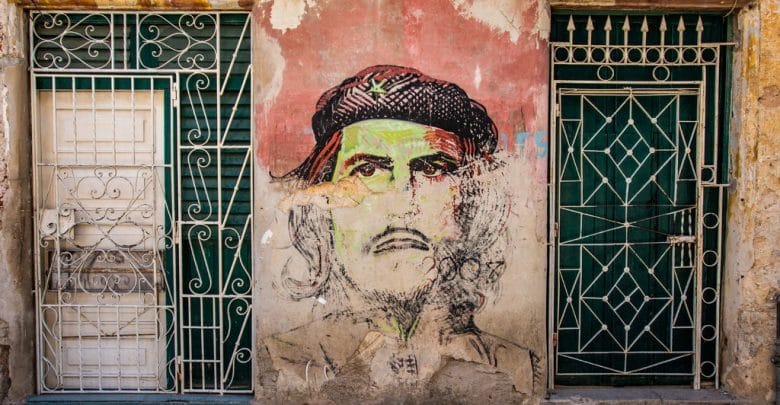
How Cubans Lost Faith in Revolution
In this election year, the key for American politicians to understanding Cuba’s politics is understanding its people and the promises of a better life that were not kept.
GUANABACOA, Cuba — There was nothing Caridad Limonta would not do for her dear mother, even if it meant fulfilling her strange wish to be buried with two pairs of socks.
Cancer took Ms. Limonta’s mother, Zenaida, in 2002, while they lived together in this ancient town across the harbor from Old Havana. Following the custom of many Cuban families, Ms. Limonta washed the body and sprinkled it with talcum powder and perfume. Holding back tears, she dressed her mother and covered her with a white sheet. Then Ms. Limonta, at age 46, carried out her mother’s odd request, pulling two polyester socks onto her feet and another pair over her hands.
A few years later, when her mother’s remains were exhumed and the bones interred in a small vault so that the tomb could be reused, Ms. Limonta saw the sense in her precautions. The tiny bones of her hands and feet were neatly contained inside the pairs of socks, like marbles in two sacks.
Until her mother died, Ms. Limonta had managed to avoid this unpleasant Cuban reality. But her mother’s illness and death also forced her to confront an unsettling truth that profoundly reshaped her relationship with the Cuban revolution and led her to a deeper understanding of what it really means to be Cuban.
It is an understanding that American voters and politicians might benefit from recognizing, in this election year when relations with Cuba, along with the votes of Cuban-Americans, are on the table. As Ms. Limonta came to realize, being a Cuban means having deep respect for, and first loyalty toward, her fellow Cubans and the heritage, customs and needs of their island society that they share, no matter who holds power there.
But it had taken Ms. Limonta decades to even approach that realization.
The first inkling came when her mother, a retired nurse, had been fussed over by some of Cuba’s best doctors inside Havana’s finest hospitals. Ms. Limonta needed to know: Had she benefited from Cuba’s acclaimed medical prowess because every Cuban does? Or had her mother been pampered because Ms. Limonta herself was a ranking member of the Communist Party and vice minister of light industry for all of Cuba?
Until then, Ms. Limonta’s faith in the revolution had been absolute. Born just three weeks after Fidel Castro started his uprising by beaching an old American yacht called Granma in a mangrove swamp on Cuba’s southern shore in 1956, she had fully embraced his promise to wipe out inequality and create a new Cuba.
Growing up in the tiny sugar mill town of Tacajó in eastern Cuba, she’d believed with all her heart that regardless of her gender, or the poverty into which she’d been born, or the deep mahogany sheen of her skin, she was equal to every other Cuban. When she boarded a trans-Atlantic ocean liner in 1976, she gazed at the thousands of other Cuban students going with her to study at Soviet universities and felt equality had already been achieved. “The ship was full of young people,” she recalls. “Chinese, white, mulatto, black, all of us equal, with practically the same clothes, the same suitcases.”
Returning to Havana in 1981, she applied her economics degree to positions in Cuba’s textile industry, overlooking the advantages she was receiving and the shortcomings of the revolution that she, unlike many other Cubans, had embraced. On the darkest day of the revolution in August 1994, when angry mobs shouted “Freedom” and “Down with Fidel”— the largest mass protest against the Castro government — she was enjoying a buffet at a Varadero beach resort, a deserved reward for a job well done. She eventually rose to vice minister and held powerful positions within the party. But she couldn’t understand why tens of thousands of Cubans had risked their lives trying to reach Florida in flimsy rafts.
As the revolution aged, contradictions grew harder to ignore. As her job took her around the country, she saw that the hospitals most Cubans went to were shabby reflections of the one where her mother was treated. Other Cubans waited months, sometimes years, for a wheelchair. They couldn’t count on oxygen being available. Vital equipment broke down. Medicines ran out. Doctors and nurses expected to be bribed.
The stark differences weighed on Ms. Limonta, weakening her revolutionary spirit as well as her heart. She was just 48 when she was rushed to the mediocre hospital to which she, as a resident of Guanabacoa, was assigned. But once doctors found out who she was, they insisted on transferring her to Cuba’s top cardiology center.
She got the pacemaker she needed, but the speedy treatment only deepened her doubts. Bound by a strict sense of social justice, she finally forced herself to see the truth. She and her mother had been pampered in their time of need not because they were equal to other Cubans. Not because they were socialists. Not because they loved Fidel. But because they were more important.
The surgery caused a nearly mortal infection in her heart. Emergency open-heart surgery left her scarred and uncertain about her life. She decided to quit her job, hand in her party membership, give back her state car and even renounce the Santería religion she had been practicing.
Standing before a mirror one day, she cried. The scars on her body made her look like she had been torn apart and sewn back together, which was how she felt about her life. She had turned her back on everything she once believed in and had no idea how to go on. She was not like her friend Lili, who led the neighborhood Committee for the Defense of the Revolution and whose faith in Communism was unshakable. Like many other Cubans whose support for the revolution lagged, Ms. Limonta had few options. She could dissent openly and invite harassment or persecution. She could throw herself into a raft and hope the sea breezes blew her to Florida. Or she could keep her thoughts to herself and focus on surviving.
Even with the subsidized rice and beans every Cuban receives, her $12 monthly pension guaranteed only misery. She needed to remake her life and found inspiration in the old treadle sewing machine that her mother had given her for graduation. Using discarded hotel sheets, she sewed crib sets for newborns that she covertly sold for a few dollars apiece. In 2011, when Raúl Castro cautiously allowed Cubans to start their own small businesses, Ms. Limonta became one of Cuba’s first legal capitalists.
Eventually, with help from a church-sponsored business incubator, she created her own company, rented space for a workshop, hired seamstresses and started turning out clothing of her own design. When President Barack Obama visited Havana in 2016 to see for himself how Cuba was responding to the opening he had set in motion, Ms. Limonta was among the Cuban entrepreneurs who met with him.
But the good times didn’t last. The Trump administration undid much of the Obama opening, tightening the screws on Cuba and promising a quick end to the Castro regime. As American tourists stayed away, Cuba made life more difficult for fledgling capitalists like Ms. Limonta and her son Oscar, who had his own design business. Despite the increasing hardships, she hoped that the arrival in 2018 of a Cuban president who was not named Castro, and of a new constitution a year later, would persuade him to stay in Cuba.
It didn’t. Late in 2018 he joined the tidal wave of young people fleeing Cuba. So did two cousins and their mother, Ms. Limonta’s twin sister, Esperanza.
Ms. Limonta’s heart keeps her in Cuba, where she receives free medical care, though not at elite hospitals. Now she brings gifts to see a doctor, as other Cubans do. She squeezes into rattling jalopies to get to work, as everybody else does. She finally feels equal to all the others who are fed up with endless assurances that the future will be better. Fed up with promises of plenty, but shortages of everything. Just surviving, day to day, week to week, saps their strength. Toughened by decades of deprivation, they have found ways to adapt to hardship, but have lost the will to demand change.
And that is something both Washington and Havana need to understand. When Joe Biden promises to pick up where the Obama administration left off with Cuba, he must make it clear to Florida’s hard-liners that Mr. Trump’s aggressive positions hurt small people like Ms. Limonta and Oscar, but not big men like the Castros and the new president, Miguel Díaz-Canel. To expect that if only things get bad enough, Cubans will rise up, when they are struggling just to stand, is not just unrealistic. It is cruel.
Likewise, the old men who run Cuba cannot deny that they’ve lost even individuals like Ms. Limonta who once embraced the revolution. Cubans are not in the streets protesting, but they have no loyalty toward the men who took Fidel Castro’s place or the political system they keep propping up.
Their allegiance is to Cuba and the conception of it that is harbored in their hearts.
It hurts her deeply to say it, but Ms. Limonta now accepts what she never thought she would: For her, “the revolution is lost.” She no longer considers herself a partidista, aligned with the Communist Party. But she very much remains a patriota, a patriot who loves her bruised and disfigured homeland and its people far more than any ideology or any ideologue.
Her damaged heart may need help to keep her alive, but she insists that nothing could ever empty it of the affection she feels for her Cuba and the hope she still holds for its future.
Anthony DePalma is a former foreign correspondent for The Times and the author of the forthcoming book “The Cubans: Ordinary Lives in Extraordinary Times,” from which this article was adapted.
